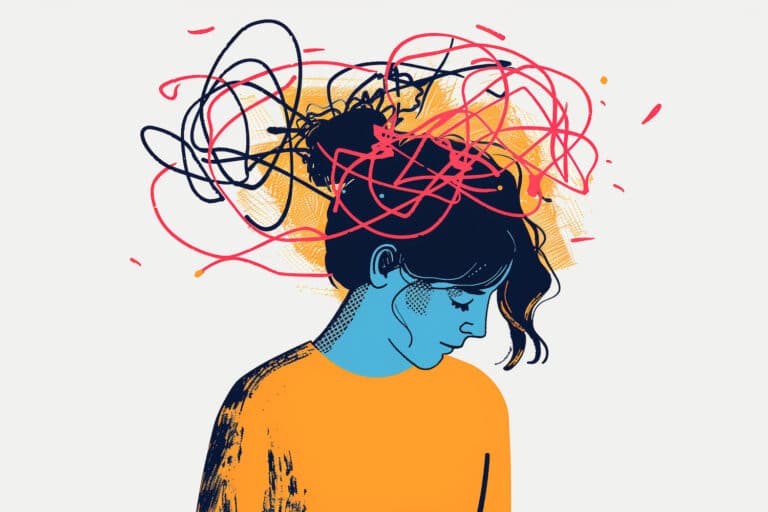Eating disorders represent a complex mix of psychological connections, societal pressures, and more that contribute to someone suffering from these conditions. It can prove challenging to single out a direct cause-and-effect relationship between a preexisting condition and someone recently struggling with an eating disorder. For those looking to understand whether there are connections between ADHD and eating disorders, understanding the potential similarities on a neurochemical level can help.
What Does ADHD Do In Your Brain?
Attention deficit hyperactivity disorder is characterized by increased impulsivity, hyperactivity, and inattention. People with ADHD have difficulty with executive function, which can affect their focus on immediate tasks, impulsivity, and memory, among other symptoms. The lack of impulse control shares similarities with eating disorders such as binge eating disorder, bulimia nervosa, and anorexia nervosa.
Impulsivity & Eating Disorders
For people suffering from eating disorders like binge eating, bulimia, or anorexia, impulsiveness is a significant component of their condition. Binge eating often happens when people feel they aren’t hungry but still eat large amounts of food in a short period. As a result, they feel out of control around food and their eating habits. A Duke University study[1] found that around 30% of adults who have suffered from binge eating disorder had a history of ADHD.
Potential Connections Between ADHD & Eating Disorders
Multiple factors can influence whether someone with ADHD begins suffering from an eating disorder. Analyzing them can give you a better idea of the possible connections between them and how you can go about future treatment.
Rewriting the Brain’s Reward System
When we eat food, it stimulates our brain’s internal reward center. These signals become more stimulated in people with ADHD. For people suffering from co-occurring binge eating disorder and ADHD, the overstimulated reward system may feed into each other and intensify the situation for someone suffering from binge eating disorder.
Sensory Processing Out of Whack
Our brains process various impulses and stimuli from the world around us within fractions of seconds. How we interpret this information directly impacts our interactions with every aspect of our lives.
People with ADHD experience a series of irregularities with these split-second interpretations. A side effect of this phenomenon revolves around our internal hunger signals. These signals can lead to people not knowing when to stop eating, or they may not have an appetite.
Food Sensitivities
People with ADHD may experience hypersensitivity in various aspects of their lives. Their physical senses can be easily overwhelmed and stimulated throughout the day. Certain foods may cause increasingly strong reactions, making it more challenging to get adequate daily nutrition.
These sensitivities can lead to restrictive food behaviors commonly associated with anorexia. Conversely, these developments can make the person feel like the food tastes extra delicious and lead to possibly binge eating.
Find Lasting Recovery at Magnolia Creek
While the research regarding a connection between ADHD and eating disorders is still slim, there have been studies[2] that have shown the potential is there. Finding a treatment center that focuses on your personal needs and doesn’t treat you as simply another case number is essential.
If you have ADHD co-occurring with an eating disorder and want to find the support you need in your recovery, you want an experienced and compassionate treatment center to help. Magnolia Creek has helped countless clients get to the underlying causes of their condition and work through the stages of their recovery.
If you or someone you love struggles with an eating disorder, please don’t hesitate to reach out. Contact us to learn more about our premier eating disorder treatment center near Birmingham, Alabama.
Sources:
https://mychn.org/adhd-and-eating-disorders-the-shocking-link-between-adhd-and-eating-disorders/
https://www.ncbi.nlm.nih.gov/pmc/articles/PMC4777329/
https://psychcentral.com/adhd/adhd-and-eating-disorders
[1] https://mychn.org/adhd-and-eating-disorders-the-shocking-link-between-adhd-and-eating-disorders/




